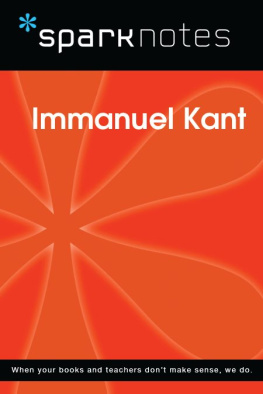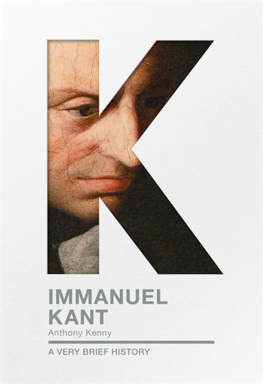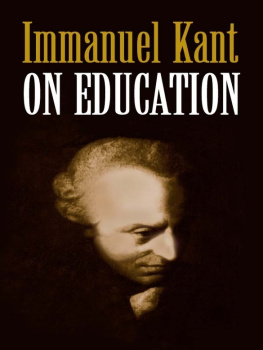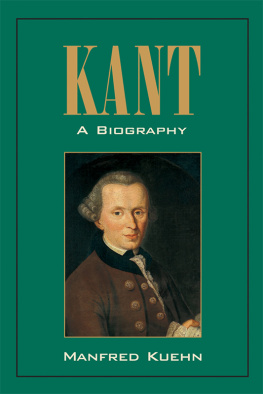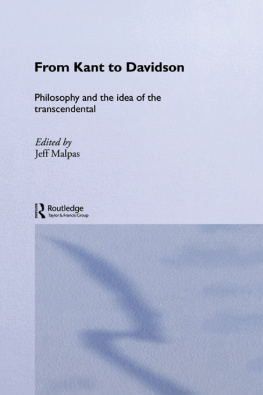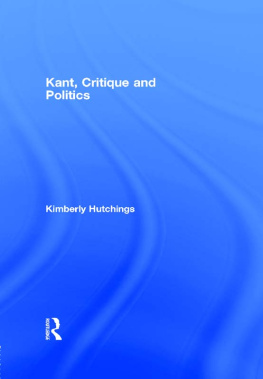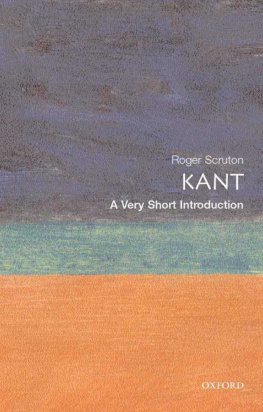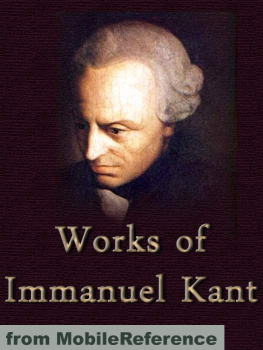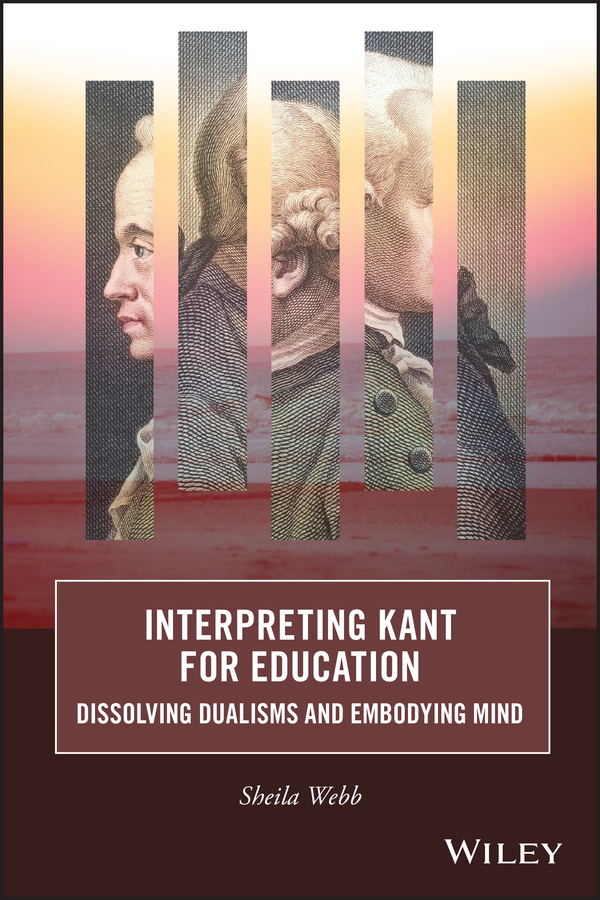
Table of Contents
Guide
Pages
The Journal of Philosophy of Education Book Series
The Journal of Philosophy of Education Book Series publishes titles that represent a wide variety of philosophical traditions. They vary from examination of fundamental philosophical issues in their connection with education, to detailed critical engagement with current educational practice or policy from a philosophical point of view. Books in this series promote rigorous thinking on educational matters and identify and criticise the ideological forces shaping education.
Titles in the series include:
- Interpreting Kant for Education: Dissolving Dualisms and Embodying Mind
- Sheila Webb
- Educational Explanations: Philosophy in Empirical Educational Research
- Christopher Winch
- Education and Expertise
- Edited by Mark Addis and Christopher Winch
- Teachers' KnowHow: A Philosophical Investigation
- Christopher Winch
- Citizenship for the Learning Society: Europe, Subjectivity, and Educational Research
- Naomi Hodgson
- Philosophy East/West: Exploring Intersections between Educational and Contemplative Practices
- Edited by Oren Ergas and Sharon Todd
- The Ways We Think: From the Straits of Reason to the Possibilities of Thought
- Emma Williams
- Philosophical Perspectives on Teacher Education
- Edited by Ruth Heilbronn and Lorraine
- ForemanPeck
- ReImagining Relationships in Education: Ethics, Politics and Practices
- Edited by Morwenna Griffiths, Marit Honerd Hoveid, Sharon Todd and Christine Winter
- Vygotsky: Philosophy and Education
- Jan Derry
- Education and the Growth of Knowledge: Perspectives from Social and Virtue Epistemology
- Edited by Ben Kotzee
- Education Policy: Philosophical Critique
- Edited by Richard Smith
- Levinas, Subjectivity, Education: Towards an Ethics of Radical Responsibility
- Anna Strhan
- Philosophy for Children in Transition: Problems and Prospects
- Edited by Nancy Vansieleghem and David Kennedy
- The Good Life of Teaching: An Ethics of Professional Practice
- Chris Higgins
- Reading R. S. Peters Today: Analysis, Ethics, and the Aims of Education
- Edited by Stefaan E. Cuypers and Christopher Martin
- The Formation of Reason
- David Bakhurst
- What Do Philosophers of Education Do?: (And How Do They Do It?)
- Edited by Claudia Ruitenberg
- EvidenceBased Education Policy: What Evidence? What Basis? Whose Policy?
- Edited by David Bridges, Paul Smeyers and Richard Smith
- New Philosophies of Learning
- Edited by Ruth Cigman and Andrew Davis
- The Common School and the Comprehensive Ideal: A Defence by Richard Pring with Complementary Essays
- Edited by Mark Halstead and Graham Haydon
- Philosophy, Methodology and Educational Research
- Edited by David Bridges and Richard D. Smith
- Philosophy of the Teacher
- Nigel Tubbs
- Conformism and Critique in Liberal Society
- Edited by Frieda Heyting and Christopher Winch
- Retrieving Nature: Education for a PostHumanist Age
- Michael Bonnett
- Education and Practice: Upholding the Integrity of Teaching and Learning
- Edited by Joseph Dunne and Pdraig Hogan
- Educating Humanity: Bildung in Postmodernity
- Edited by Lars Lovlie, Klaus Peter Mortensen and Sven Erik Nordenbo
- The Ethics of Educational Research
- Edited by Michael McNamee and David Bridges
- In Defence of High Culture
- John Gingell and Ed Brandon
- Enquiries at the Interface: Philosophical Problems of OnLine Education
- Edited by Paul Standish and Nigel Blake
- The Limits of Educational Assessment
- Andrew Davis
- Illusory Freedoms: Liberalism, Education and the Market
- Edited by Ruth Jonathan
- Quality and Education
- Christopher Winch
Interpreting Kant for Education
Dissolving Dualisms and Embodying Mind
Sheila Webb

This edition first published 2022
Originally published as Volume 54, Issue 6 of The Journal of Philosophy of Education
Chapters and editorial organization 2022 Philosophy of Education Society of Great Britain
All rights reserved. No part of this publication may be reproduced, stored in a retrieval system, or transmitted, in any form or by any means, electronic, mechanical, photocopying, recording or otherwise, except as permitted by law. Advice on how to obtain permision to reuse material from this title is available at http://www.wiley.com/go/permissions.
The right of Sheila Webb to be identified as the author of this work has been asserted in accordance with law.
Registered Offices
John Wiley & Sons, Inc., 111 River Street, Hoboken, NJ 07030, USA
John Wiley & Sons Ltd, The Atrium, Southern Gate, Chichester, West Sussex, PO19 8SQ, UK
Editorial Office
9600 Garsington Road, Oxford, OX4 2DQ, UK
For details of our global editorial offices, customer services, and more information about Wiley products visit us at www.wiley.com.
Wiley also publishes its books in a variety of electronic formats and by printondemand. Some content that appears in standard print versions of this book may not be available in other formats.
Limit of Liability/Disclaimer of Warranty
While the publisher and author have used their best efforts in preparing this book, they make no representations or warranties with respect to the accuracy or completeness of the contents of this book and specifically disclaim any implied warranties of merchantability or fitness for a particular purpose. It is sold on the understanding that the publisher is not engaged in rendering professional services and neither the publisher nor the authors shall be liable for damages arising herefrom. If professional advice or other expert assistance is required, the services of a competent professional should be sought.
Library of Congress CataloginginPublication Data
Names: Webb, Sheila (Independent scholar), author.
Title: Interpreting Kant for education : dissolving dualisms and embodying mind / Sheila Webb.
Description: Hoboken, NJ : Wiley, 2022. | Series: Journal of philosophy of education book series | Includes index.
Identifiers: LCCN 2022040971 (print) | LCCN 2022040972 (ebook) | ISBN
9781119912170 (paperback) | ISBN 9781119816478 (adobe pdf) | ISBN
9781119816485 (epub) | ISBN 9781119816461 (obook)
Subjects: LCSH: Kant, Immanuel, 17241804. | EducationPhilosophy.
Classification: LCC LB14.7 .W425 2022 (print) | LCC LB14.7 (ebook) | DDC
370.1dc23/eng/20220926
LC record available at https://lccn.loc.gov/2022040971
LC ebook record available at https://lccn.loc.gov/2022040972
Cover design: Wiley
Cover image: Courtesy of Johanna Nordland
Preface
There is perhaps no thinker in the modern world who has laid the way for the development of philosophy so influentially as Immanuel Kant. He is the towering figure in the wake of whose work philosophy finds its different directions. And it is hard to think of the philosophy of education, especially in its modern incarnations, without some sense of Kant in the background, whether as the pillar of reason, the supreme proponent of deontological ethics, or the philosopher who leads Michel Foucault to raise the question again: What is enlightenment? Yet for many, both enthusiasts and detractors, Kant's ideas are encountered indirectly, with overreliance on dominant interpretations and acquiescence in received ideas. Encyclopaedia entries, simplified exegesis, and synoptic accounts abound, and the general effect is to provide an image of the man and his ideas that readily succumbs to caricature.
Next page

